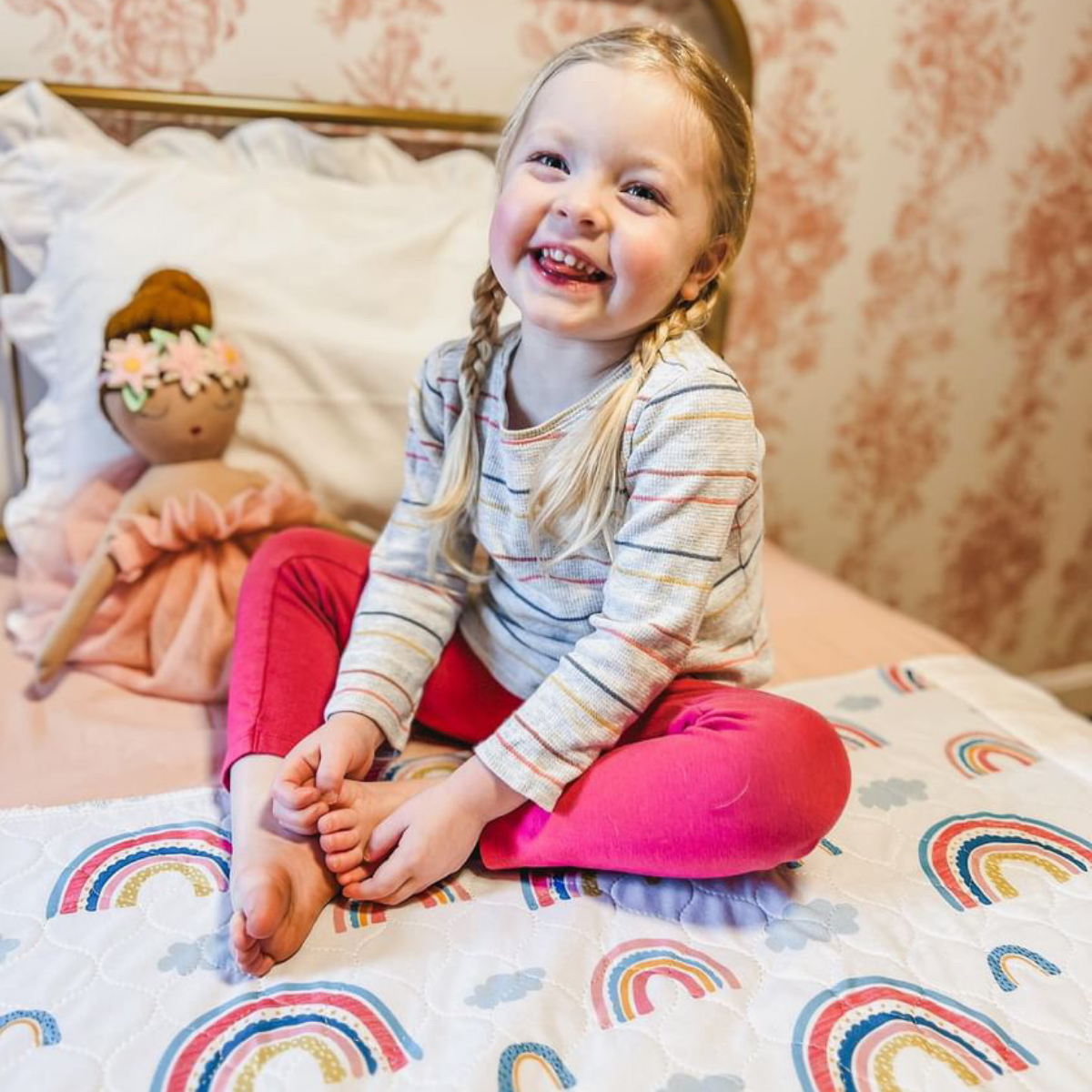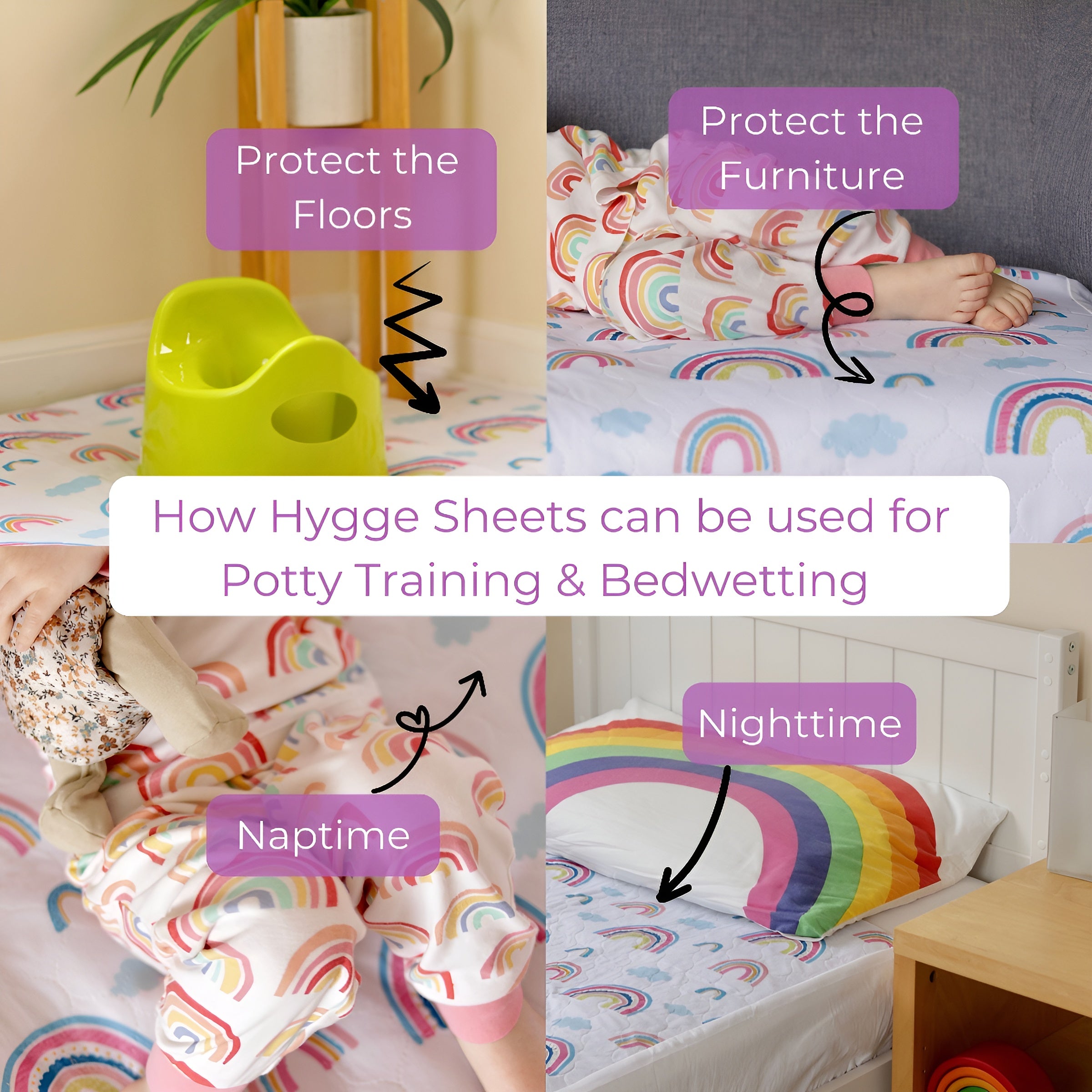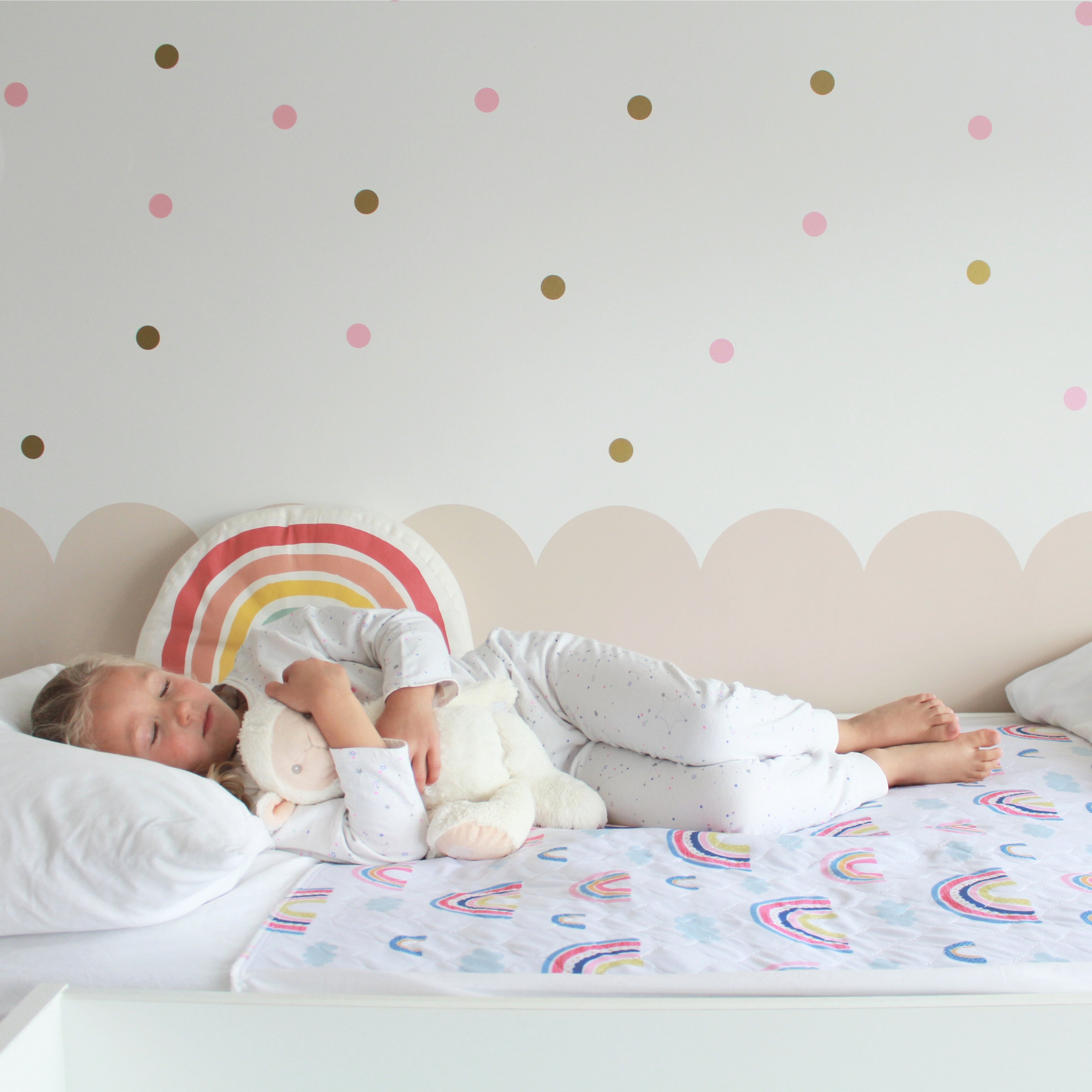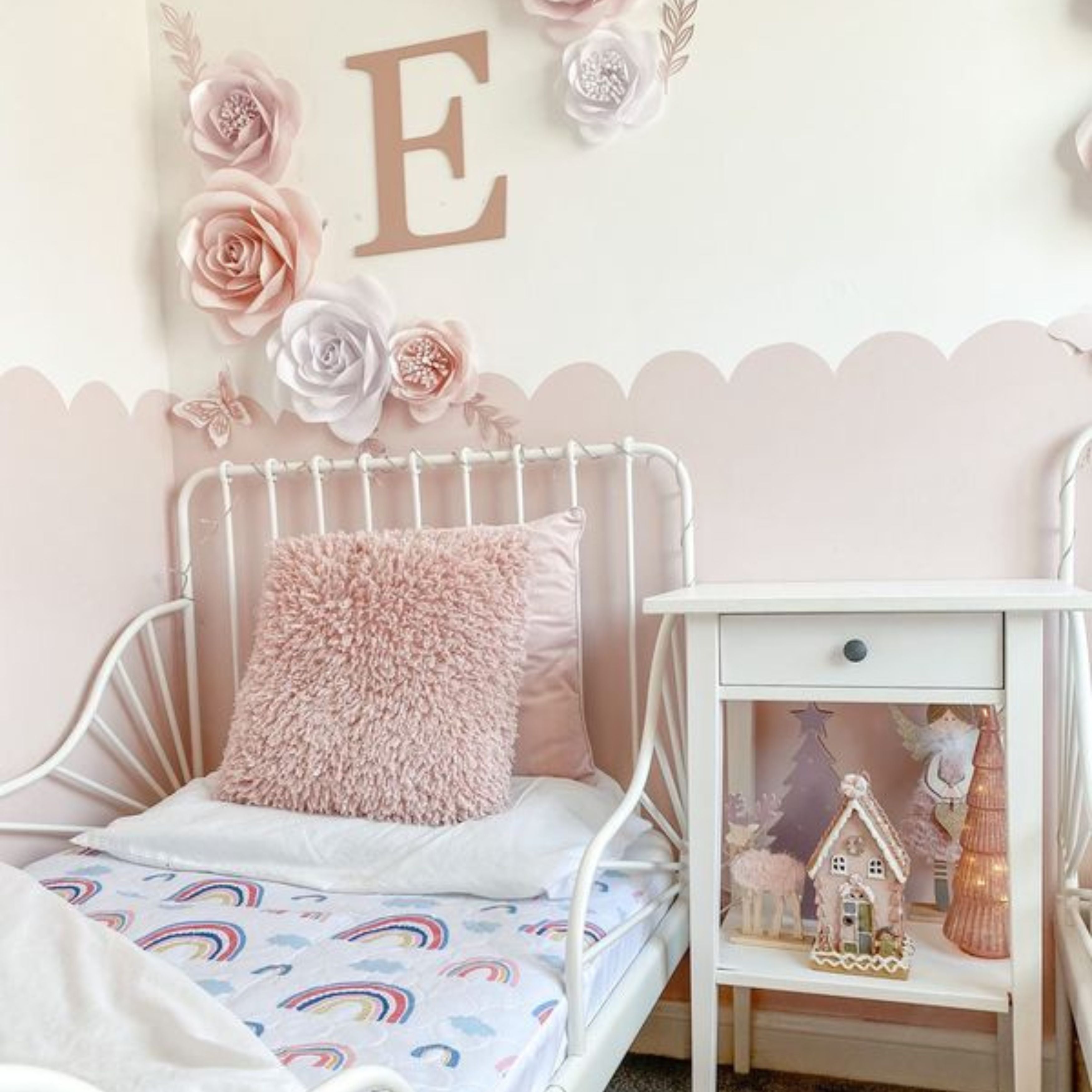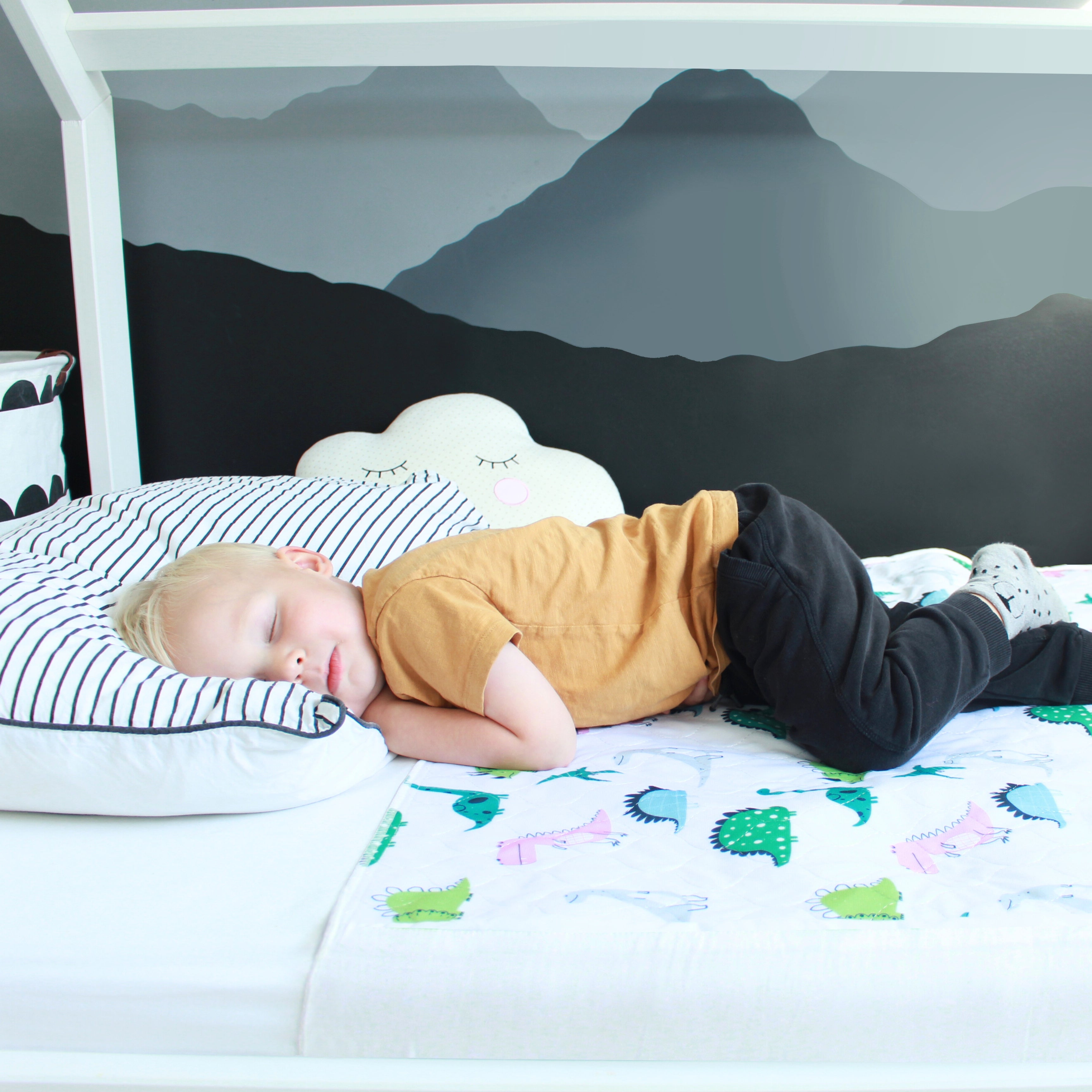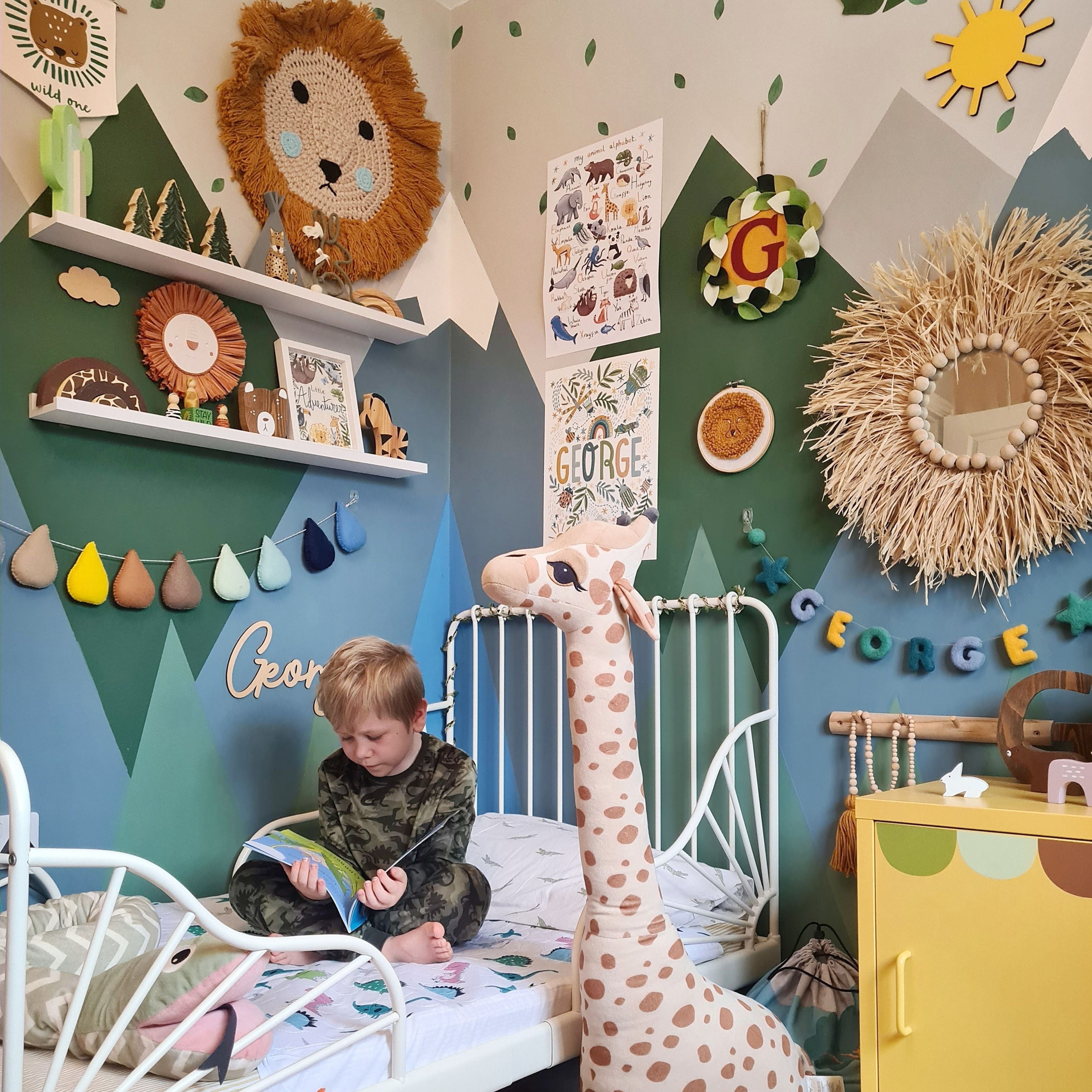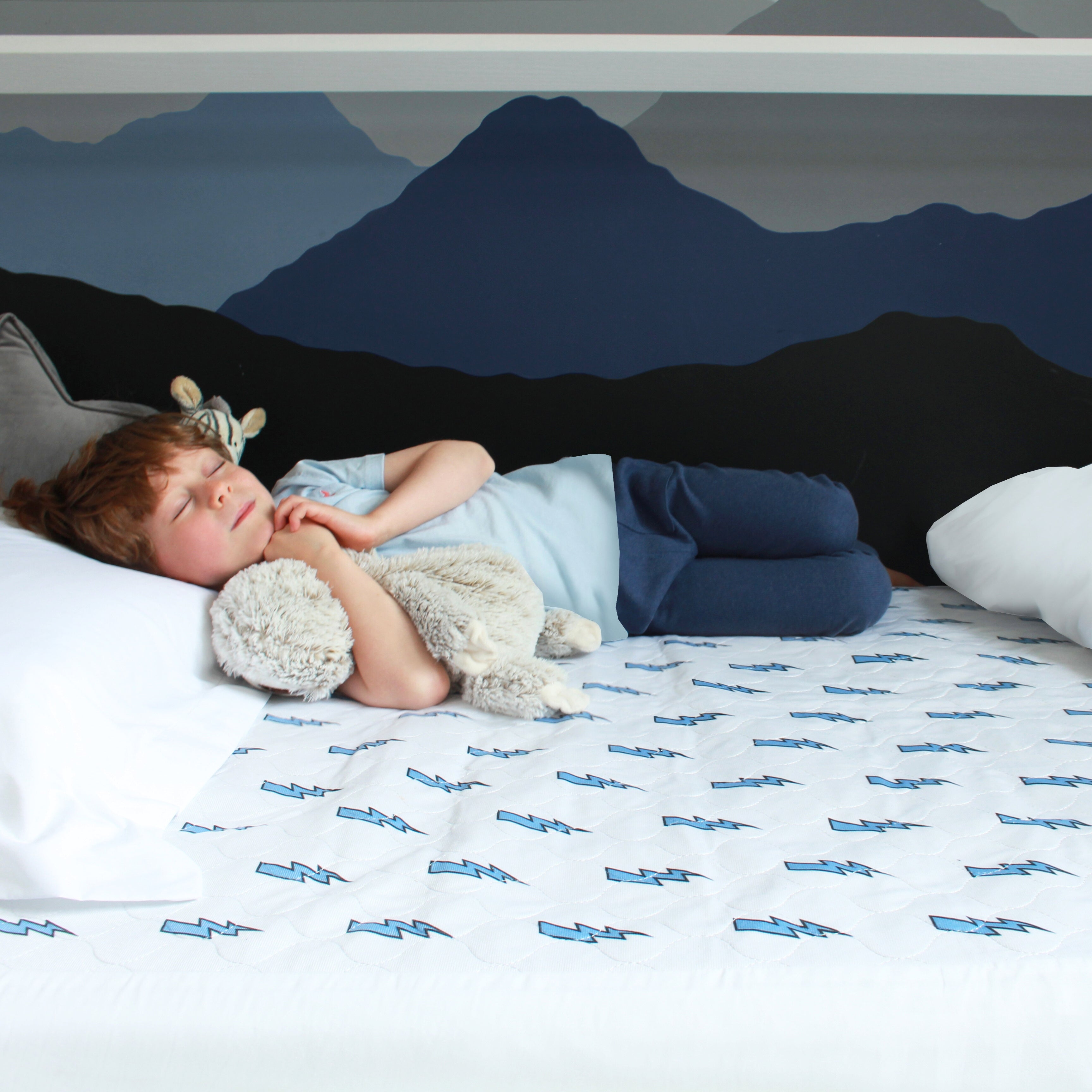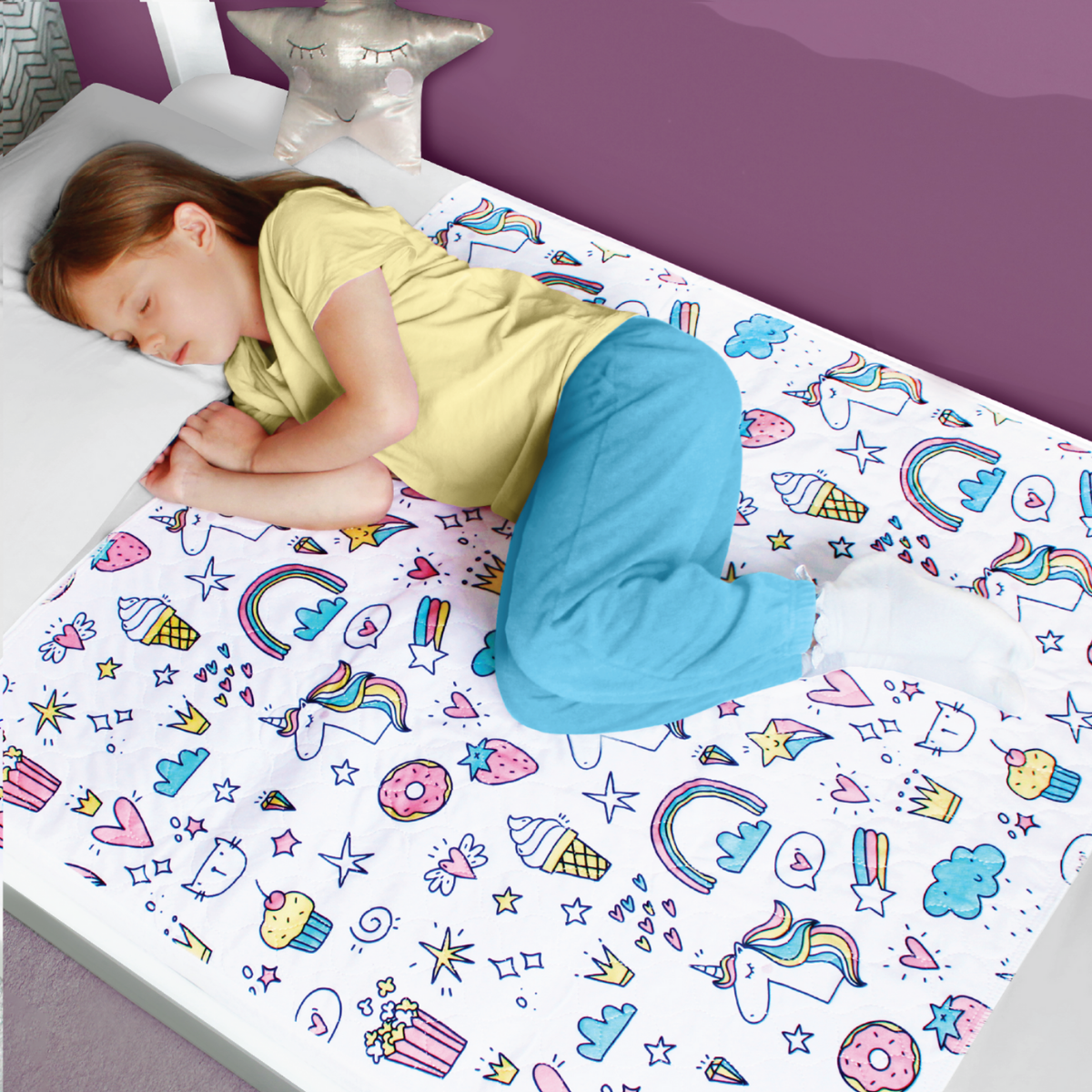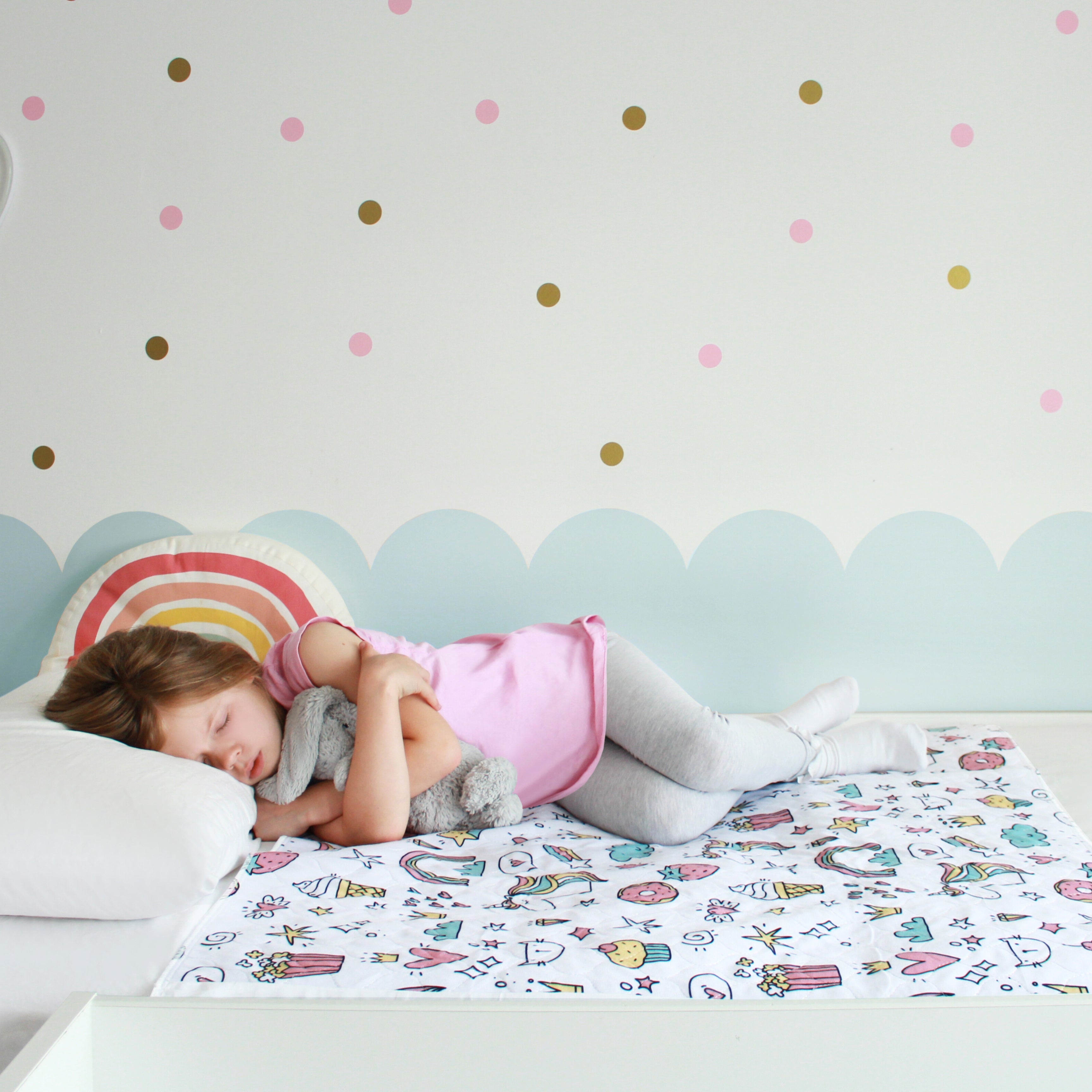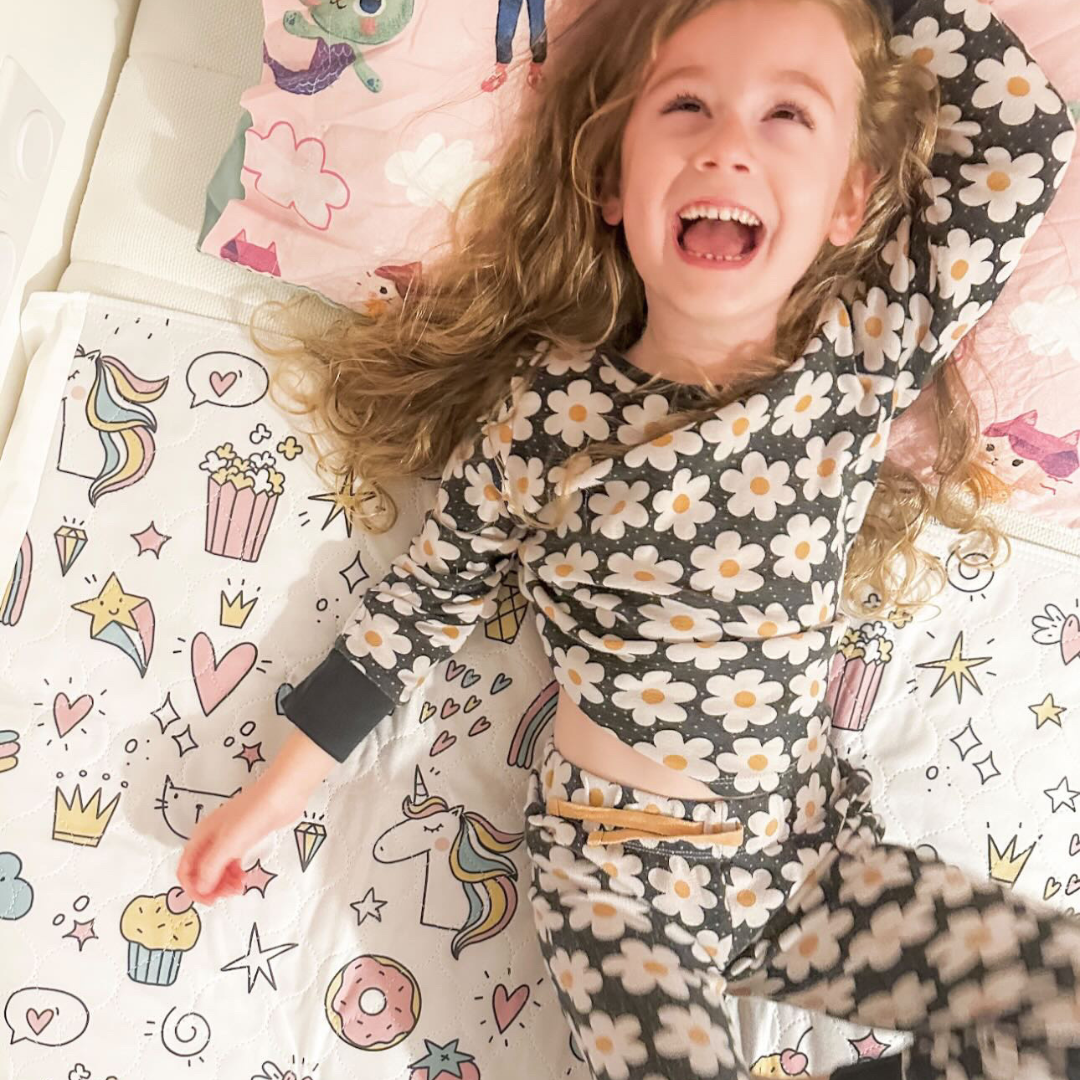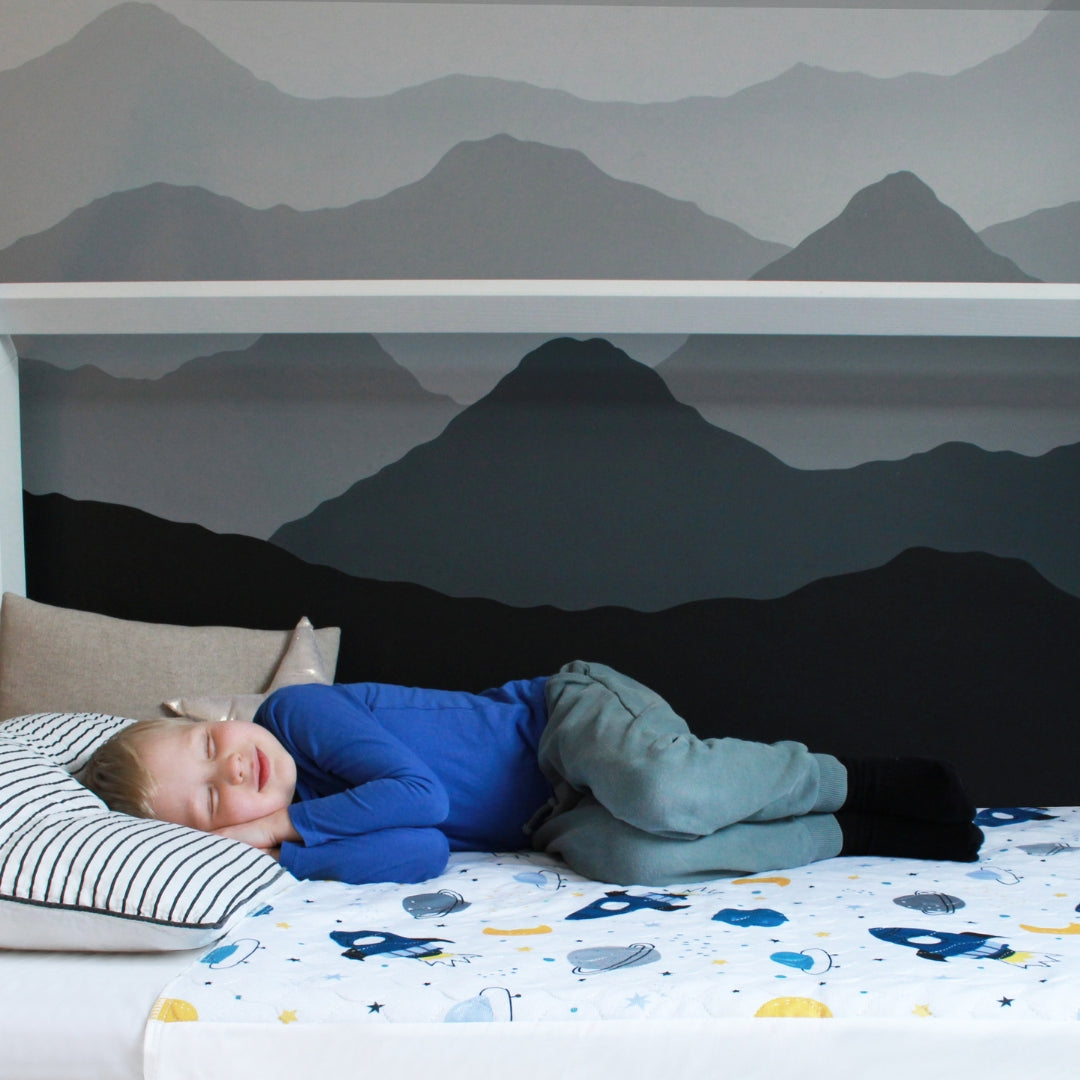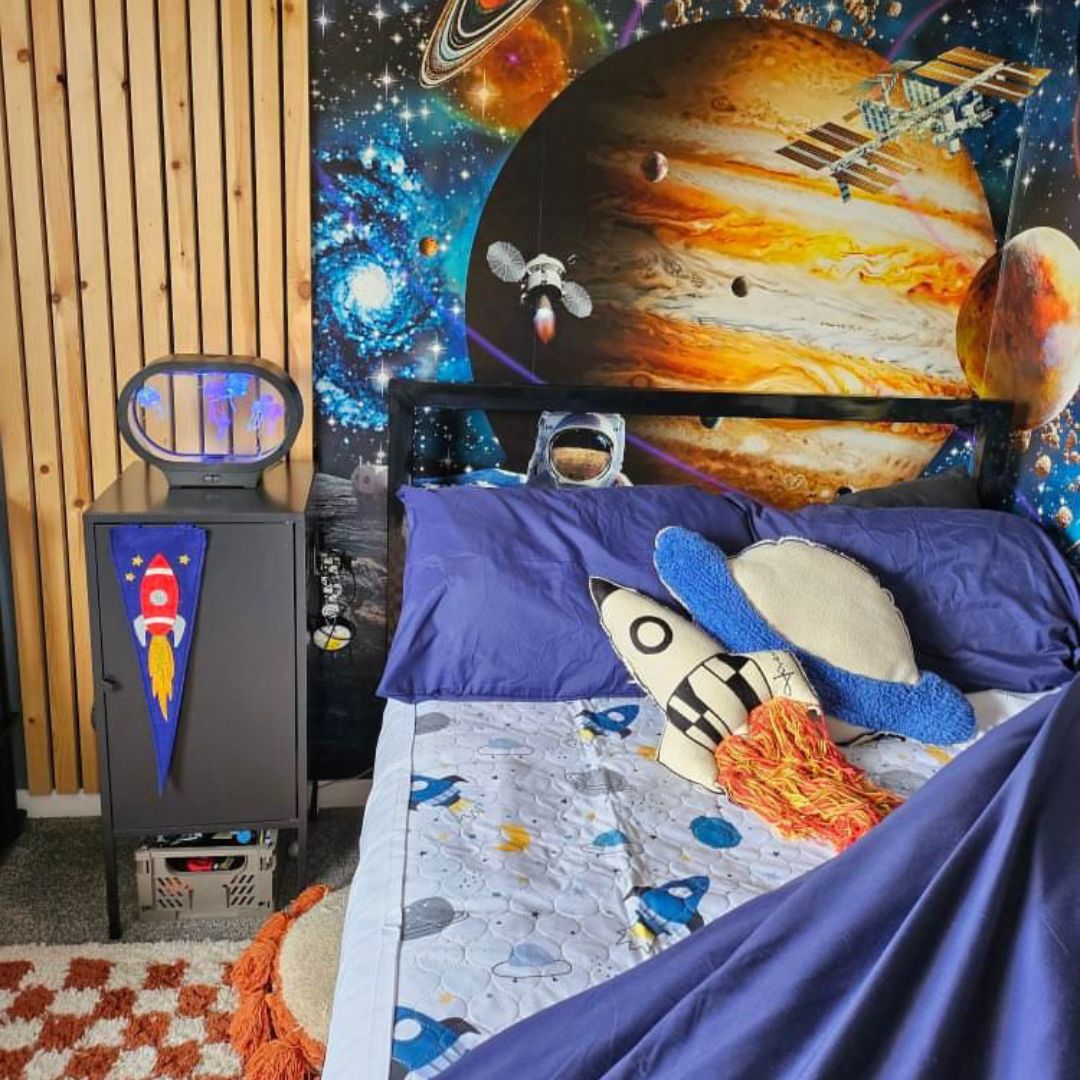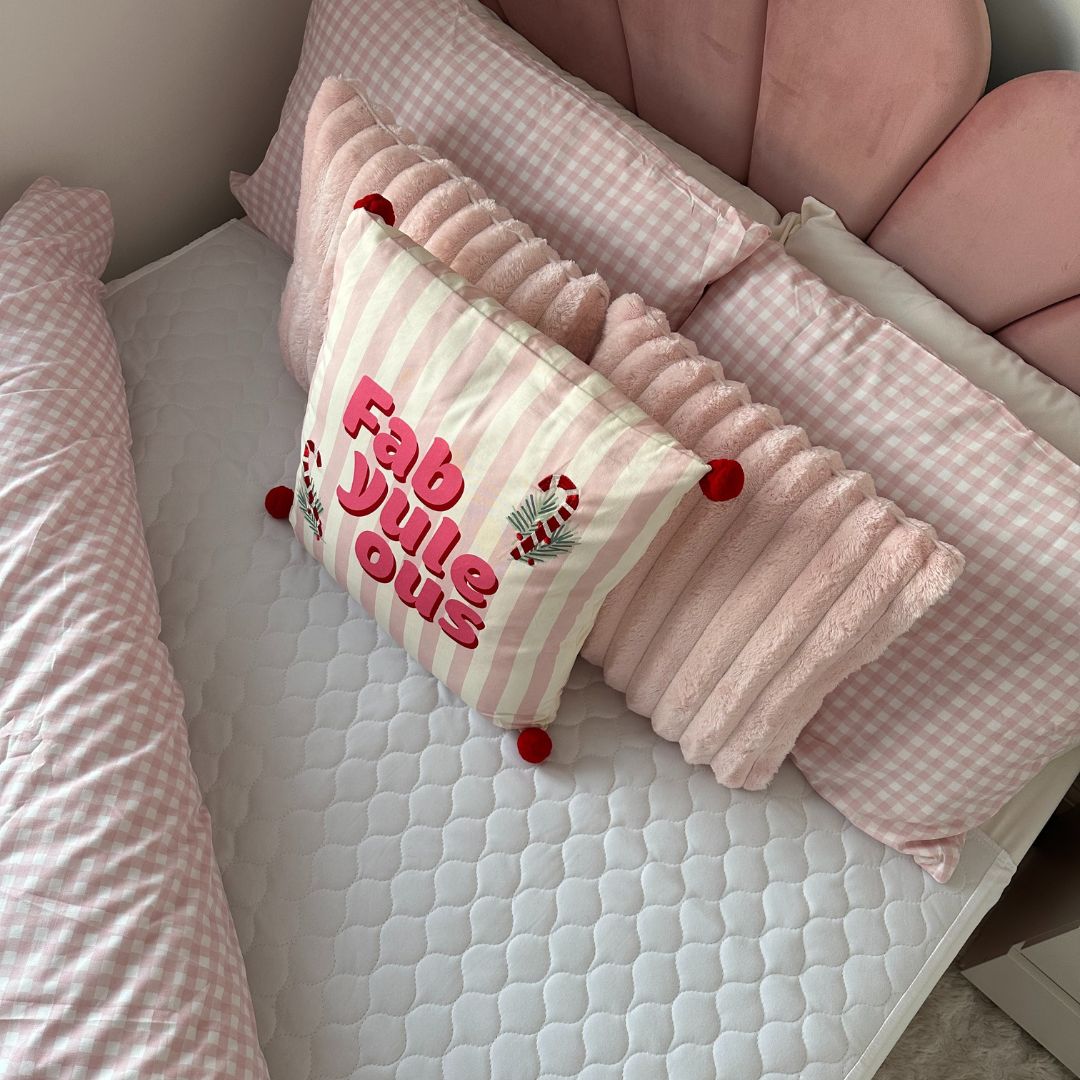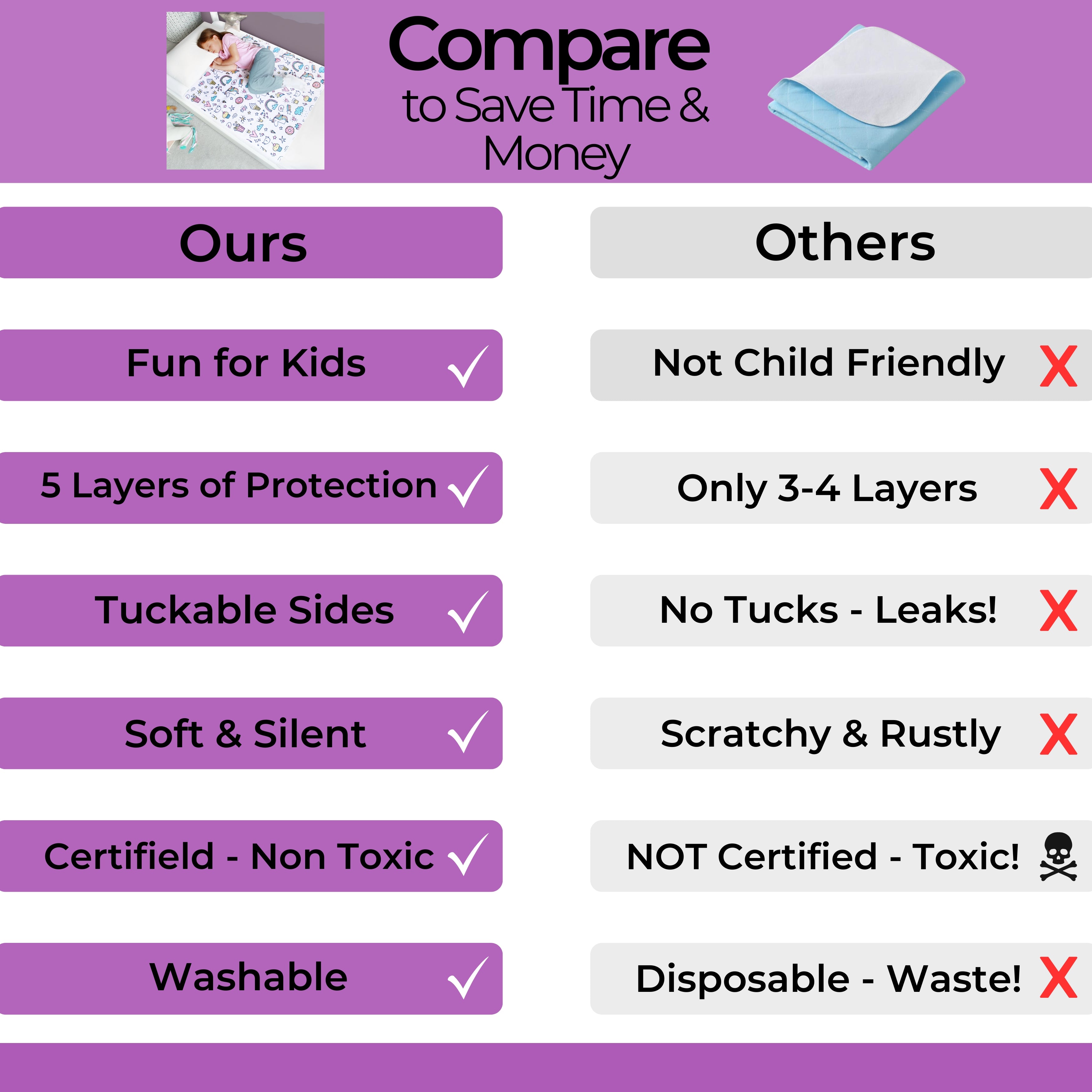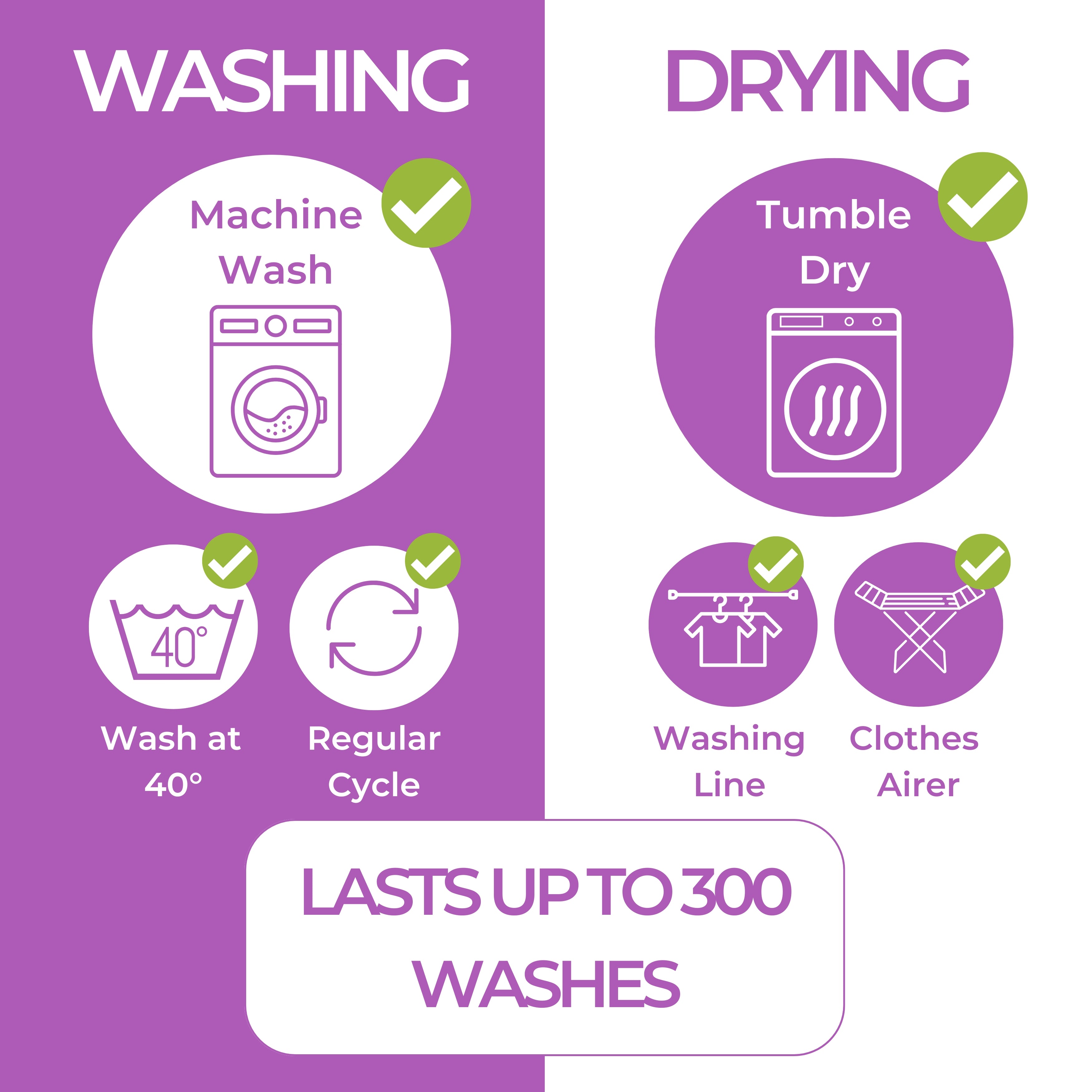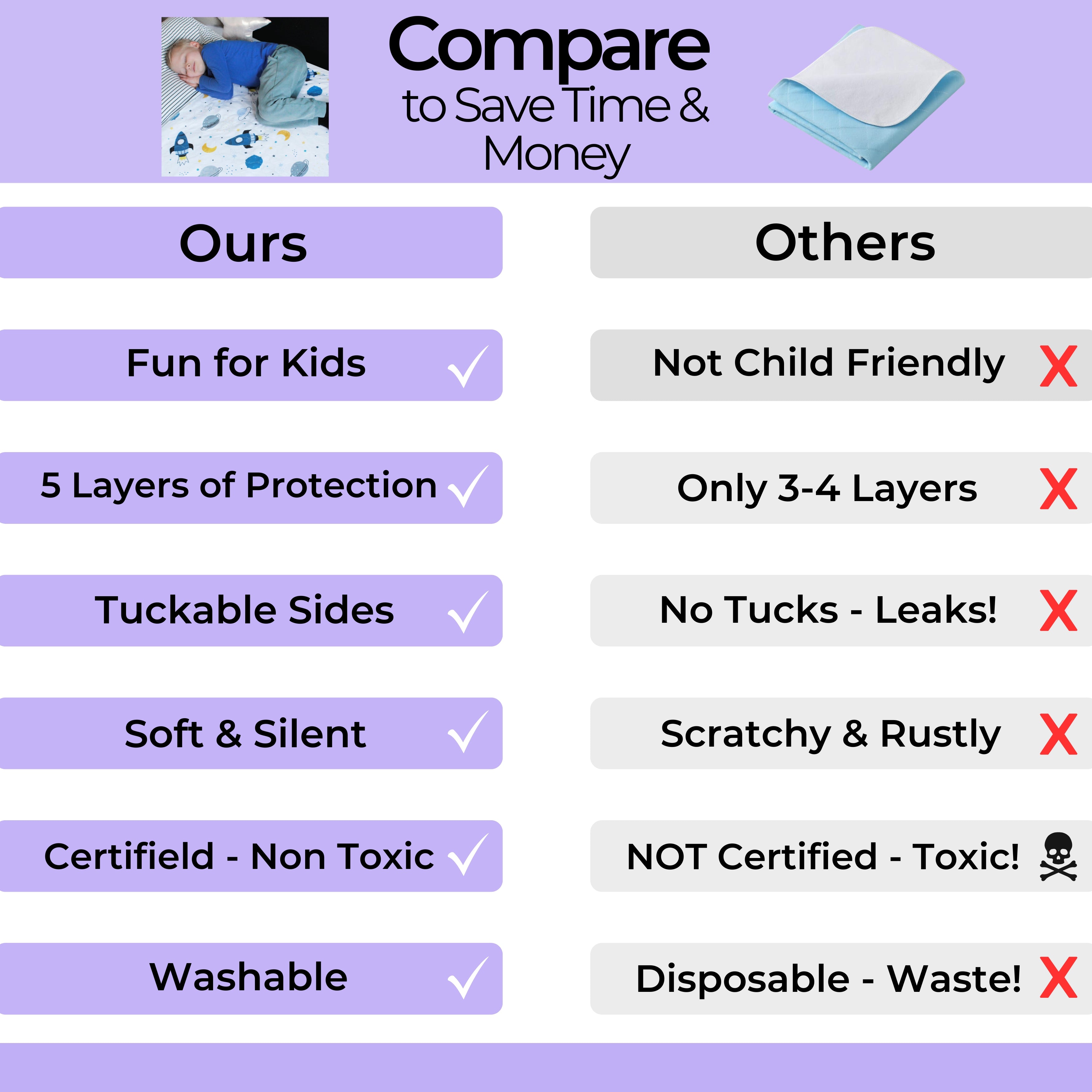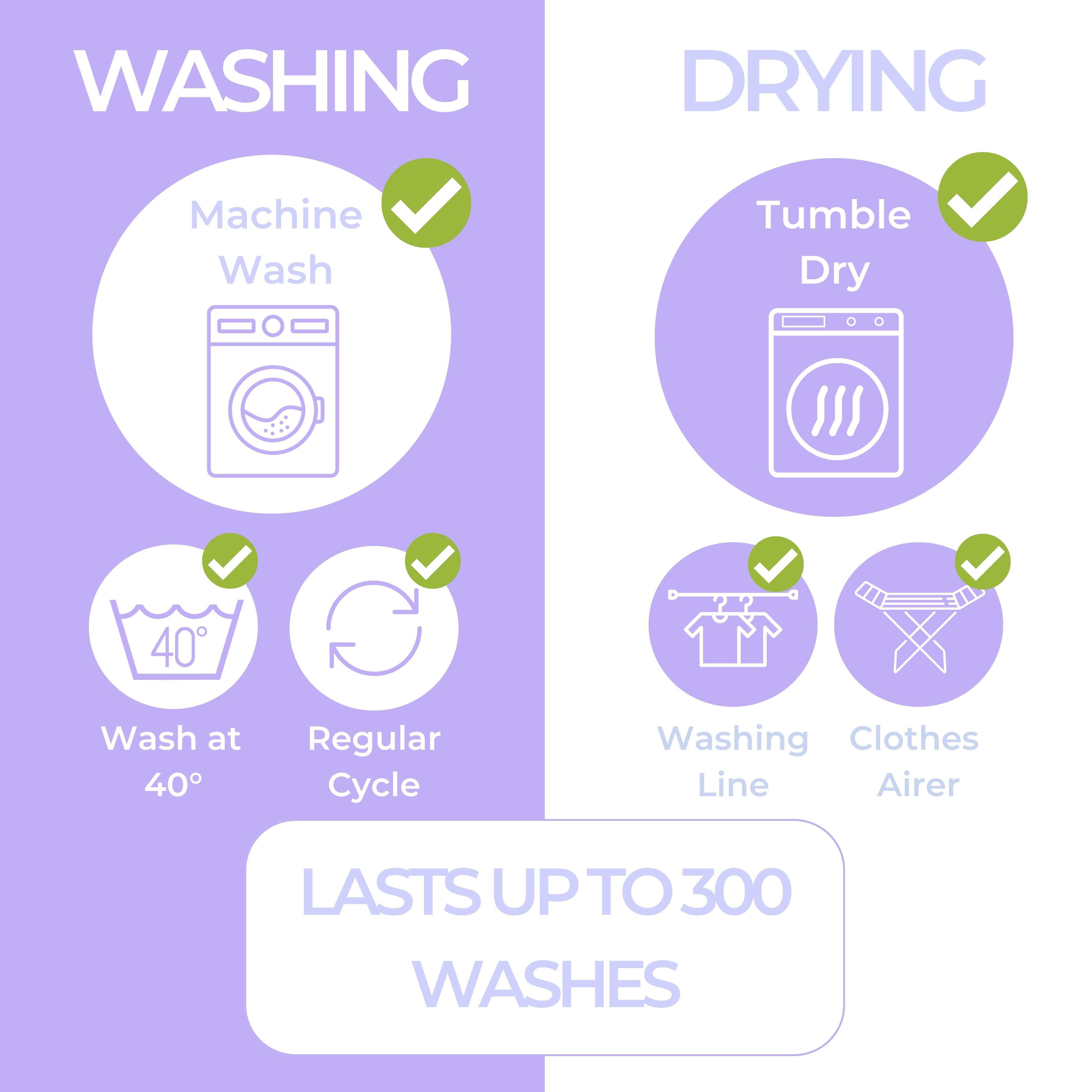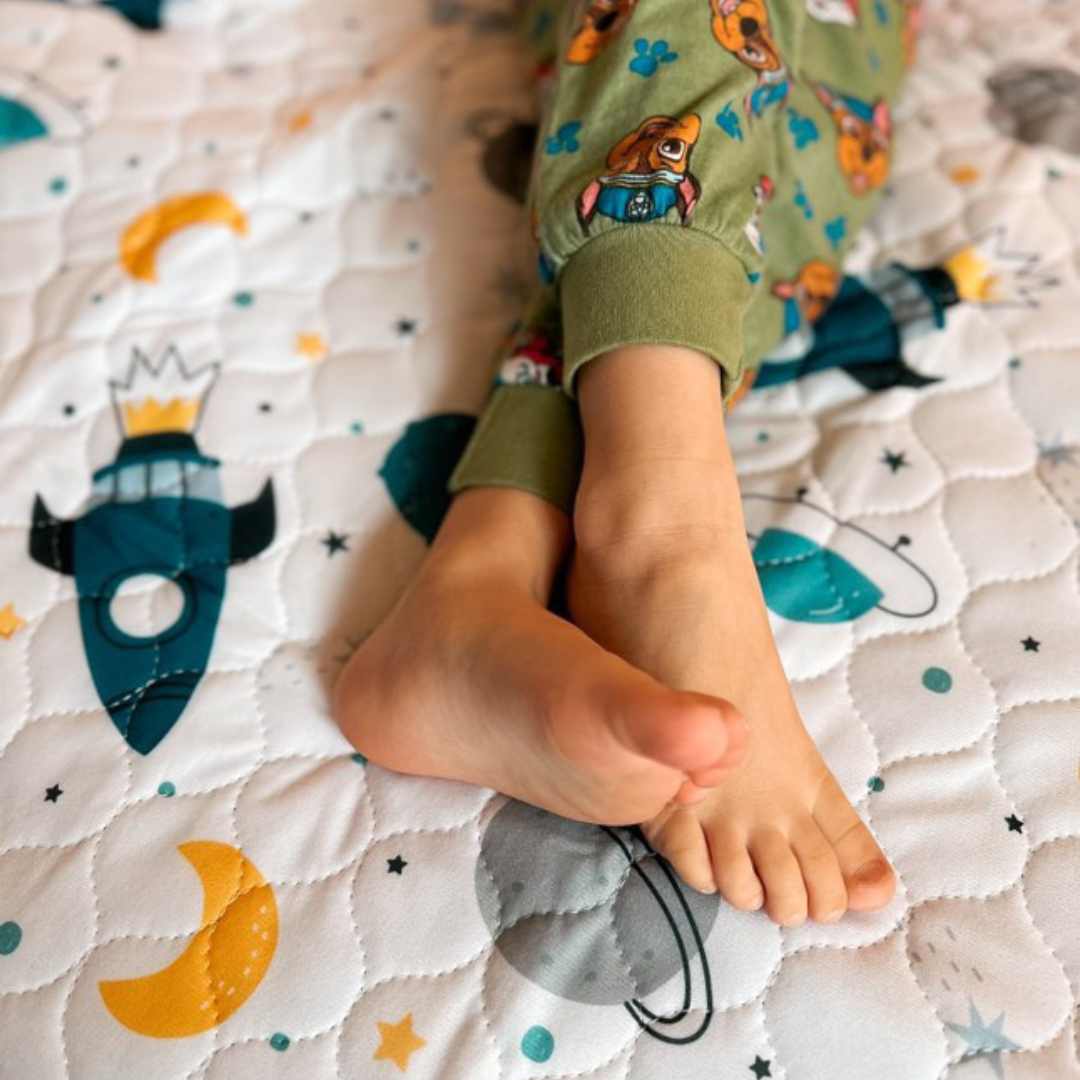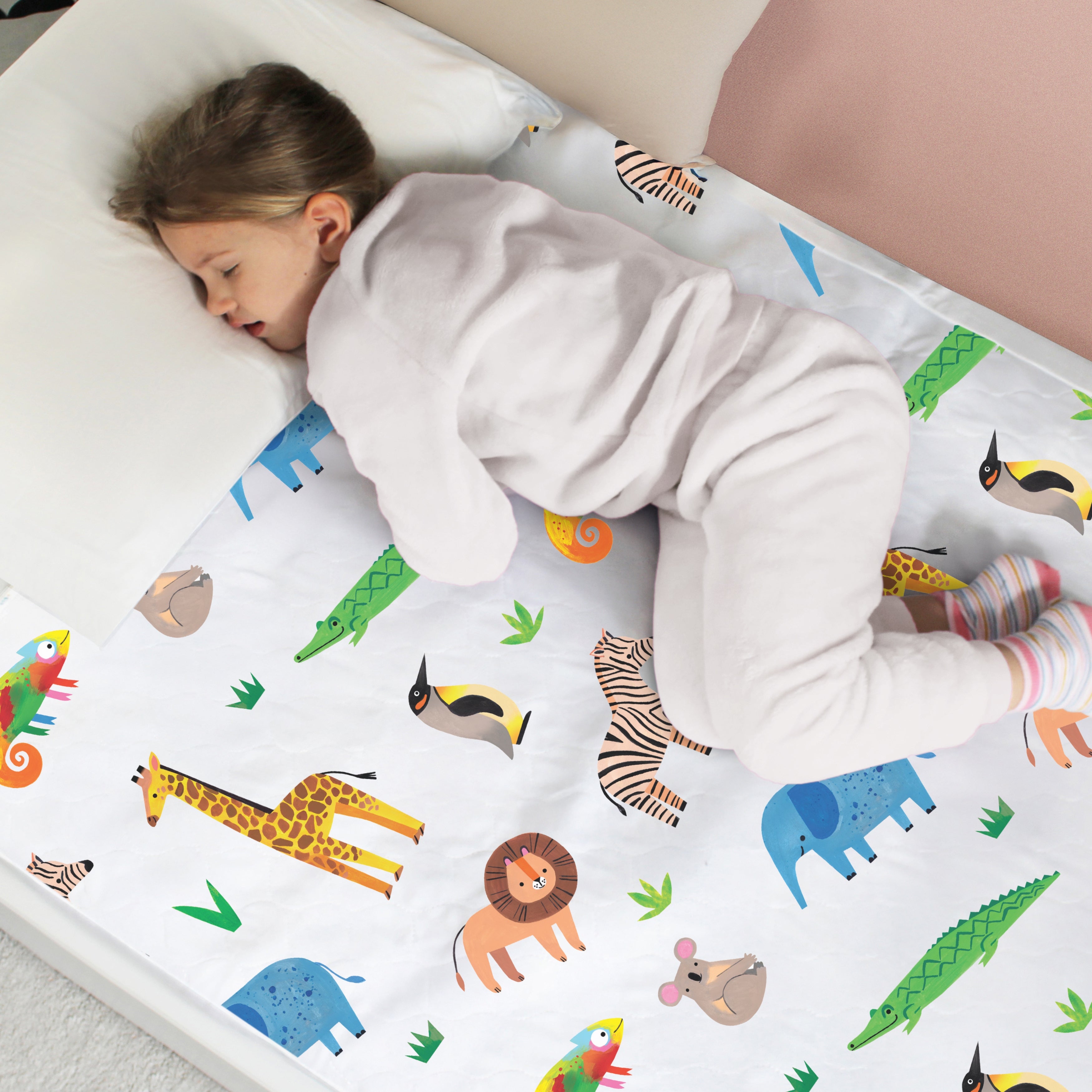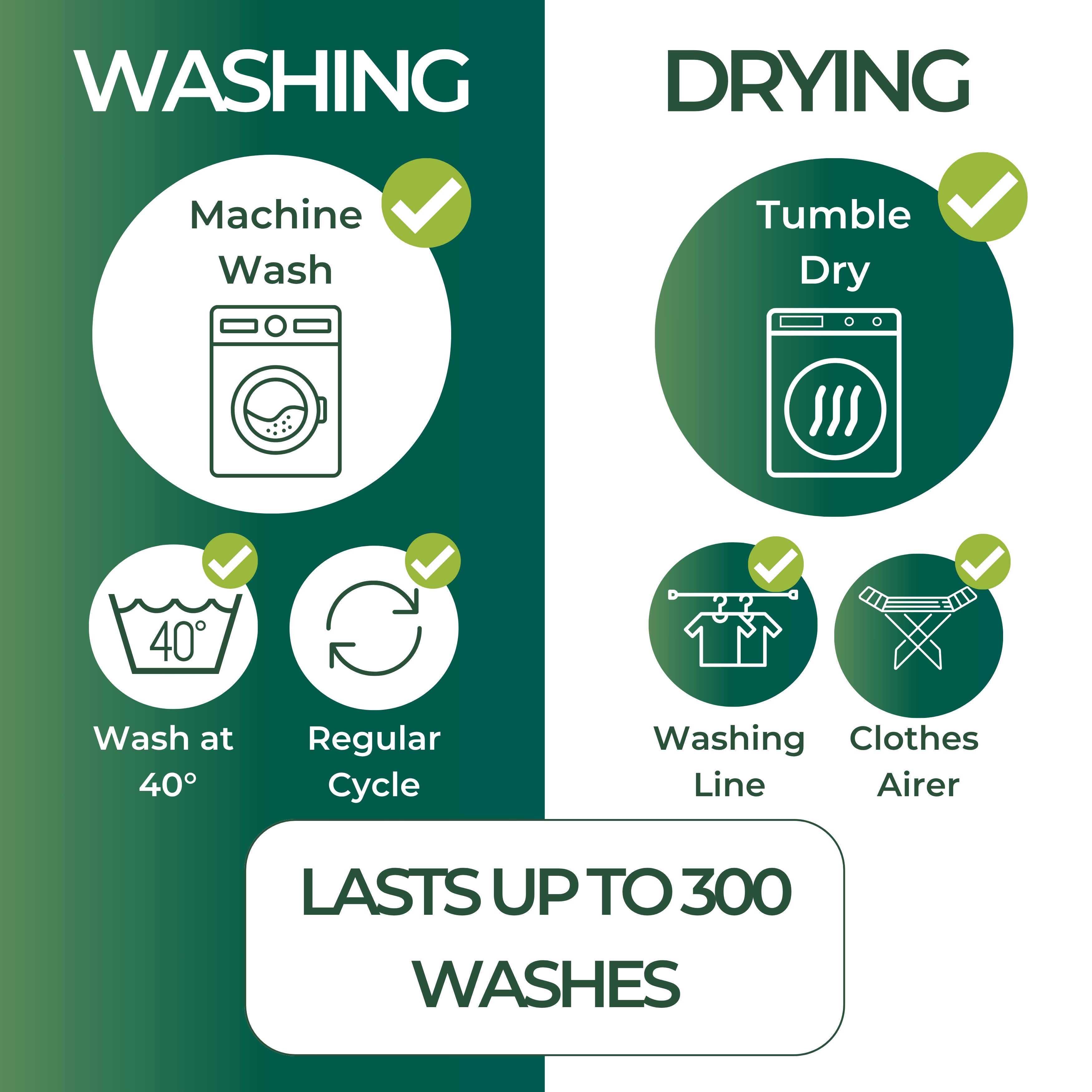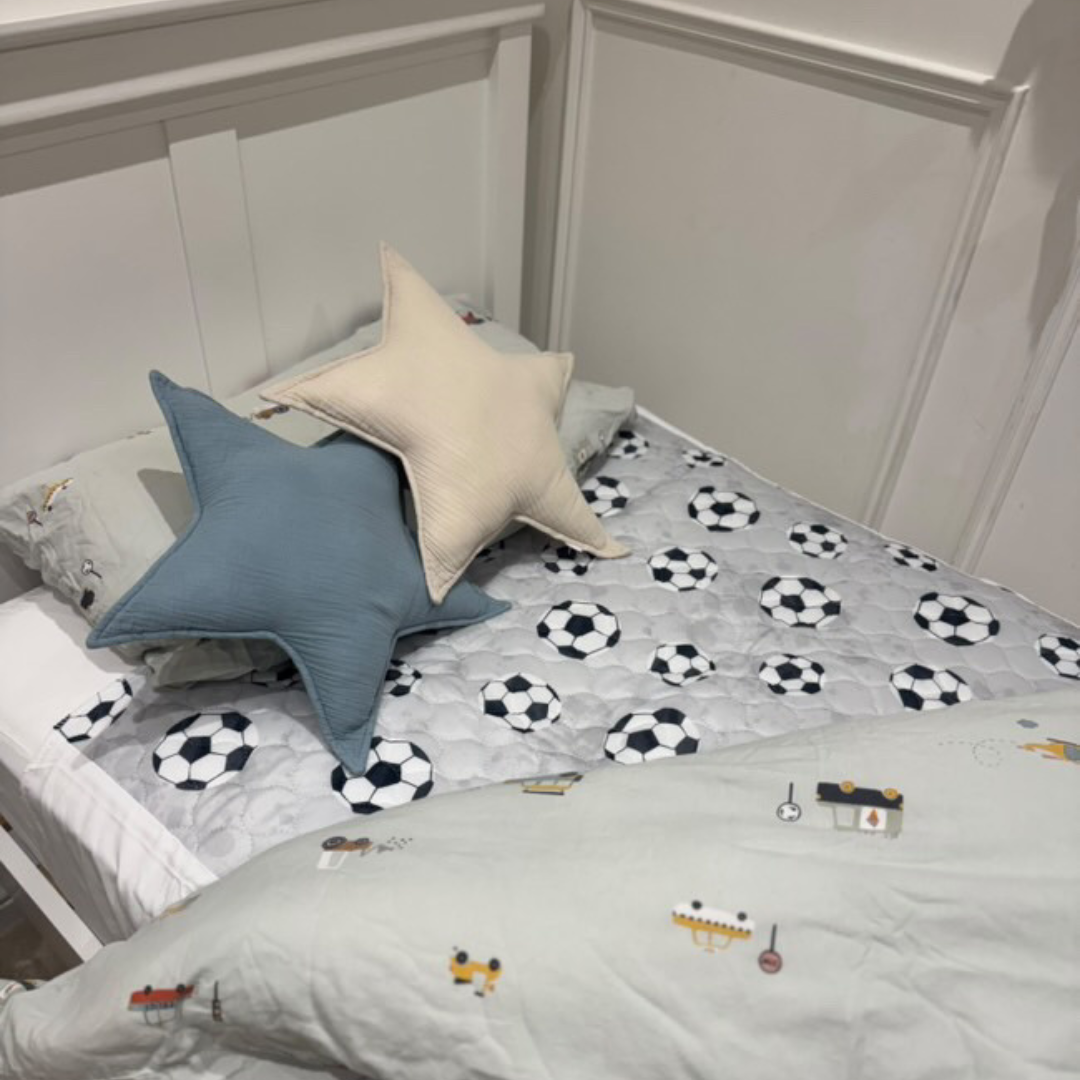Most parents know what it’s like when their child wets the bed. It’s something they’ll have to deal with countless times in their child’s early years. While this is something a child should grow out of, that doesn’t always happen.
Usually, kids learn how to overcome this by the time they’re five or six years old, though that isn’t always the case. Occasional bedwetting can be concerning, but it’s more of an issue when it's happening on a regular basis.
It’s something every parent will want to deal with as early as they can. Let’s dive into how this can be done.
Understanding Bedwetting: Causes and Age
Before diving in, it’s worth looking at what could be causing bedwetting. It could be one of a few underlying causes. The most common of these are:
- They fail to wake up when their bladder sends a signal that it’s full.
- They produce a lot of wee during the night and don’t wake up in time for the toilet. By the age of 5, the level of the vasopressin hormone should be high enough. Vasopressin helps regulate the amount of urine produced by the kidneys. During the night, the body typically produces more vasopressin, which signals the kidneys to produce less urine. This reduction in urine production helps prevent the bladder from becoming too full during sleep.
- Their bladder can’t hold the amount of wee they produce at night.
Your child’s bedwetting could be due to one of these or a mixture of them. Thankfully, all of them are treatable with a little bit of effort. If none of these are an underlying cause, it could be a medical issue, making it worth seeing a professional.
How to Stop Bedwetting Permanently: Top Tips
Most causes of bedwetting can be addressed with a little bit of work. Using these tips could be more than enough to help with your child's bedwetting. Some that have proven to be effective include:
- Avoid giving them large amounts of fluid at night – stop this at least 1 hour before they go to bed.
- Get them to use the toilet before going to bed (or even twice).
- Help your child use the potty/toilet if they wake up on their own at night.
- Have a potty in their room to help them go more easily in the night.
- Ensure they are not constipated. If a child is constipated, their bowel can push on their bladder, meaning they can't hold as much urine in the night.
- Practice good daytime drinking. Filling up the bladder and voiding/going to the toilet frequently in the day can help to exercise the bladder muscles.
- Remember – never punish them if they have any accidents when getting through the issue.
Using all of these could help to train your child to stop wetting the bed.
Effective Ways to Stop Bedwetting at Age 12 or Older
While older children should’ve overcome bedwetting before they reach age 12, that isn’t always the case. Even if they only wet the bed occasionally, it’s still an issue worth dealing with. Thankfully, many of the tips mentioned above could help, but you might need to do somewhat more to help.
Your child will be at an age where they can understand things better, so you could talk to them about it more openly. Using a few ways to stop bedwetting with an older child helps with this, like:
- Getting a bedwetting alarm to help your child wake up and go to the toilet – there are many different brands to choose from, and these can be super helpful for many older children.
- Talking to your child about any nightmares they’re having and helping to address them.
- Taking your child to the doctor to address any potential medical causes such as constipation, lack of the hormone vasopressin, an overactive bladder, etc.
- Speaking to your school nurse or contacting the Eric Charity helpline if you need additional support.
- The GP may ask you and your child to keep a diary to monitor toileting (poos and wees), as well as drinking and wetting at night. This can help them work out what the issue might be. Some resources can be found on stopbedwetting.org.
These should be enough to help you get started on stopping your 12-year-old from wetting the bed.
Stopping Bedwetting in Older Children Naturally
Older children could find wetting the bed much more embarrassing than when they were younger. It’s important that you let them know they shouldn’t be embarrassed to talk to you about it.
Let them know they can talk to you, and you can help them overcome their bedwetting. Go through many of the tips mentioned above and try to get to the root of the problem together. If there’s an underlying cause for their bedwetting, work with them to address this.
While it could take some time, it’ll help older children stop bedwetting faster than you’d think. If your older child is motivated to stop wetting, then it's a great sign, and success is more likely.
Nighttime Routines to Prevent Bedwetting
What you do in the lead-up to bedtime can have a large impact on whether or not your child wets the bed. With a few nighttime routines, however, you can minimise these chances quite a bit:
- Avoid giving them water right before bed – stop drinking at least 1 hour before sleeping.
- Encourage them to go to the toilet/potty before going to bed – if they are able to go twice before bed, this will also help and is called a double void. Get them to go to the toilet at the start of their bedtime routine and then right before going to sleep.
- For boys – ensure they sit for a wee before bed.
- Make bedtime as relaxing as possible, e.g., no screens if possible.
With these, you’ll drastically limit the chances of your child wetting the bed.
Helping Your Child Stop Wetting the Bed
When your child wets the bed regularly, it’s natural to feel a bit frustrated. You’ll have to clean them, change their PJs, and then look after the bed itself with the help of waterproof sheets! And that’s before thinking about getting them back to sleep. It’ll interrupt your sleep quite a bit.
Helping them stop doesn’t need to be too difficult, however. Try the above and keep their specific circumstances in mind. With time and effort, you shouldn’t have a problem getting them through it.
Dealing With Bedwetting: A Parent's Guide
While bedwetting can be embarrassing for your child, it can also take its toll on you as a parent. You’ll need to help your child overcome the problem while also dealing with bedsheets, among other items. It’s enough to cause a little bit of stress.
Though you should put your child first when dealing with bedwetting and their feelings, it doesn’t mean you shouldn’t try to make it easier for yourself while you’re at it.
There are more than a few ways you can help with this. Using Hygge Sheets waterproof mattress protectors, which your child can sleep directly on top of, can be a huge help because they not only protect your child's bed but also make changing the bed at night much quicker than if the mattress protector was under the fitted sheet.
These come in a range of designs, materials, and sizes too!
Good luck and keep smiling. Finally, please see our list of where to get more help with bedwetting in the UK.
Take care,
Catherine x

